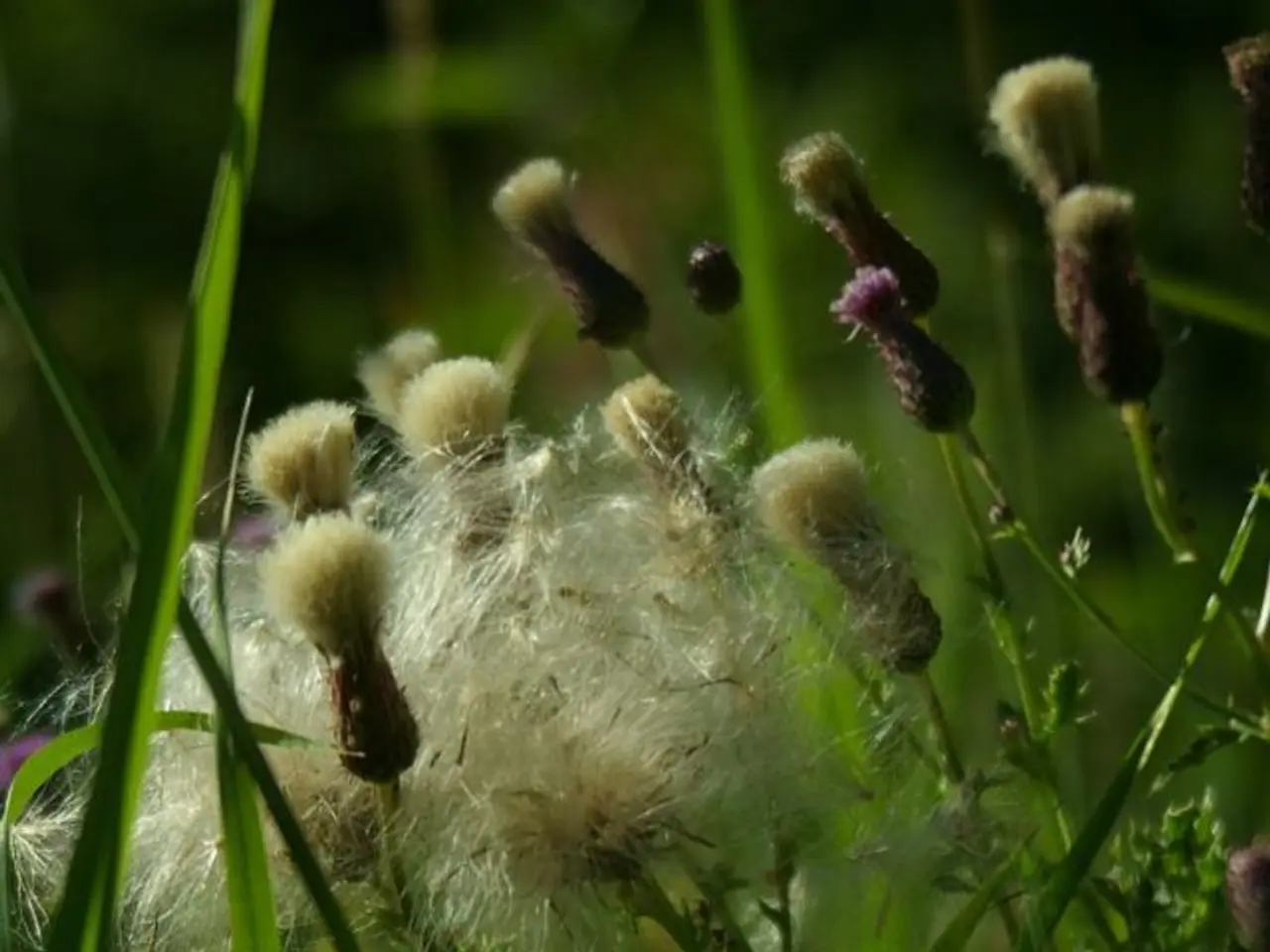Organic Farming versus Conventional Farming: Key Distinctions and Advantages
### Organic versus Conventional Farming: A Balancing Act for Sustainability
The debate between organic and conventional farming practices has long been a topic of discussion in the agricultural community. Both approaches offer unique advantages and challenges when it comes to environmental impact, productivity, and cost.
#### Organic Farming: Advantages and Impacts
Organic farming, which avoids synthetic chemicals, Genetically Modified Organisms (GMOs), and artificial fertilizers, is a sustainable agricultural method that prioritizes ecological balance, biodiversity, and soil fertility.
One of the key benefits of organic farming is its support for higher biodiversity. Organic farms tend to have about 30% higher species richness and support roughly 50% more organisms compared to conventional systems, due to the avoidance of synthetic pesticides and fertilizers[2]. This encourages richer soil microbe and insect communities.
Organic farms also often have higher soil organic matter, improved soil structure, and greater soil microbial diversity. Practices like cover cropping (adopted by 76% of organic farmers vs. 10% conventional) enhance soil stability, water infiltration, and resistance to climatic stressors such as drought[3].
Because organic methods reduce synthetic chemical inputs, they tend to lower nutrient runoff and protect water quality at a local scale[2][3]. Additionally, organic soils can sequester more carbon, improving soil organic carbon stocks, which mitigates greenhouse gas emissions per hectare[1][3]. Organically managed soils outperform conventional ones during climate extremes due to increased water-holding capacity and soil stability[3].
#### Organic Farming: Challenges
Despite its environmental benefits, organic farming faces major scalability challenges due to lower yields. Organic farming typically produces about 30% lower yields per hectare compared to conventional agriculture. This yield gap means organic farming requires 20–70% more land to produce the same amount of food, which risks increased land conversion, deforestation, and habitat loss if scaled globally[1][2].
While greenhouse gas emissions per hectare may be lower, emissions per unit of product may be higher due to the yield gap and increased land-use change emissions[1][2]. Organic farming is usually more labor-intensive and costly, limiting its scalability and adoption in some regions[1].
#### Conventional Farming: Advantages and Impacts
Conventional farming, characterized by the use of designed fertilizers, pesticides, herbicides, and genetically modified crops, is particularly effective in meeting global food demand through high yields and advanced development techniques.
More efficient land use helps contain agricultural expansion and biodiversity loss. Improved technologies in conventional farming help reduce some per-unit environmental footprints[1]. Conventional farming is more cost-effective due to the use of synthetic inputs, advanced equipment, and efficient farming systems[2].
#### Conventional Farming: Environmental Concerns
However, conventional farms tend to support lower species richness and overall fewer soil and above-ground organisms compared to organic farms, often due to heavy use of synthetic pesticides, fertilizers, and intensive tillage[2]. High synthetic input use can lead to soil degradation, nutrient runoff, water pollution, and increased nitrous oxide and ammonia emissions per area[2].
#### A Balanced Approach
In conclusion, organic farming offers clear environmental benefits at the local and soil ecosystem levels but faces major scalability challenges due to lower yields, which can lead to greater land use and potentially higher total environmental impacts when adopted broadly. Conventional farming provides higher efficiency and crop yields but often at the expense of biodiversity and soil health. The optimal approach may involve integrating beneficial practices from both systems to balance productivity and environmental sustainability[1][2][3].
The choice between organic and conventional farming depends on individual priorities, whether they focus on environmental stewardship, health, or economic considerations. Both approaches have their merits and challenges, and a balanced approach that considers the unique aspects of each system may be the key to a sustainable future for agriculture.
---
References:
[1] Smith, L., et al. (2014). Agriculture, food security, and climate change. Nature, 514(7521), 387-395.
[2] Reganold, J. P., et al. (2018). Comparing the environmental impacts of organic and conventional agriculture. Journal of Environmental Quality, 47(1), 1-14.
[3] Lal, R. (2004). Soil carbon sequestration impacts on global climate change and food security. Science, 304(5676), 1623-1627.
- Science plays a crucial role in organic farming, as it helps develop strategies that avoid synthetic chemicals, GMOs, and artificial fertilizers, prioritizing ecological balance, biodiversity, and soil fertility.
- The environmental science behind organic farming has revealed that organic farms tend to have higher biodiversity due to the absence of synthetic pesticides and fertilizers, fostering richer soil microbe and insect communities.
- In the realm of finance, organic farming might be more labor-intensive and costly, limiting its scalability and adoption in some regions, despite its potential benefits for the environment and climate-change mitigation.
- Cooking with organic produce can be an integral part of a healthy-cooking lifestyle, as it ensures a diet rich in nutrients and free from synthetic chemicals, contributing to personal growth and well-being.
- Organic farming is a core component of sustainable-living and education-and-self-development, encouraging awareness about the impact of our food-and-drink choices on the environment, health, and climate-change.
- The agriculture industry is facing a critical juncture in terms of career development, with the need to accommodate both the productivity requirements of conventional farming and the environmental concerns of organic farming, fostering skills-training in sustainable practices.
- Home-and-garden enthusiasts can practice sustainable-living by adopting organic gardening practices, further supporting biodiversity and contributing to a healthier environment and climate-change mitigation.
- As climate-change continues to pose challenges to our food systems, the integration of both organic and conventional farming practices holds the potential for a balanced approach that addresses productivity, environmental sustainability, and the overall lifestyle implications for the industry.




